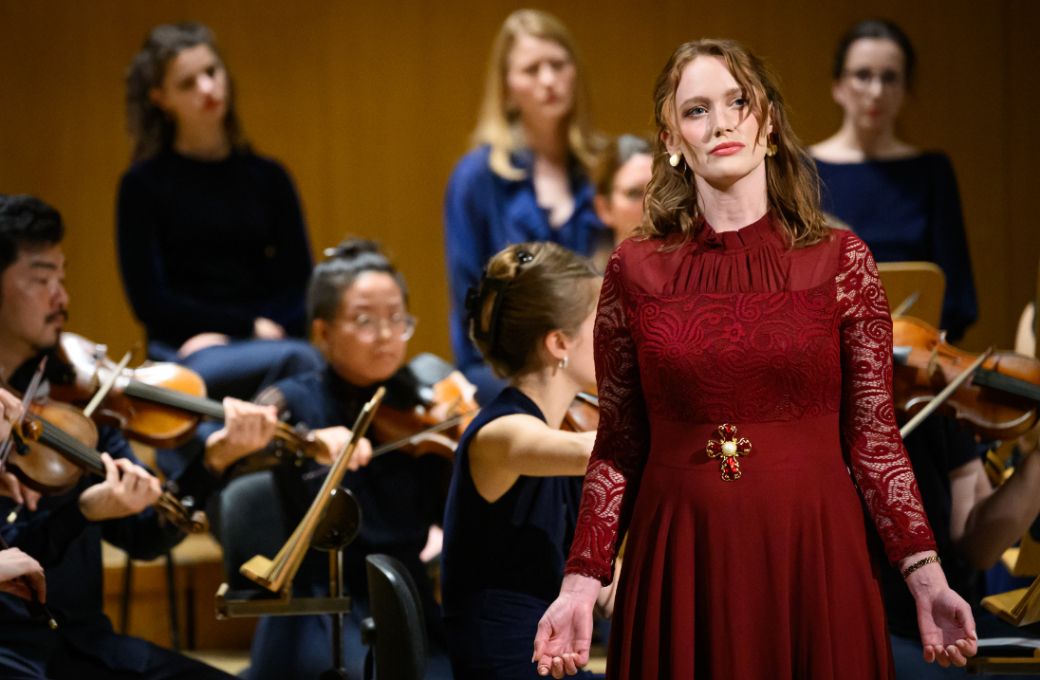On the surface, it’s not at all clear what would have attracted Handel to the subject of Theodora. The story of Christian martyrs in 4th-century Antioch centres on a pair of selfless lovers who deny themselves all material pleasures in pursuit of pious martyrdom, not a subject you might instantly associate with a composer so famously fond of earthly delights. Yet it drew from him some of his most moving music and he poured into its three acts arias of rare psychological depth, with duets that come close to eroticism in their spiritual intensity.

Thomas Dunford and his Ensemble Jupiter are just the latest in a long line of modern interpreters who have come to recognise that, in Theodora, they have a treasure on their hands, and their performance in Brussels’ BOZAR brought to an end a miniature European tour they have been undertaking with the work. All that experience helped them to bring insight and depth to the work’s spiritual beauty. The string ensemble caressed all the softest elements of the score with beguiling warmth, while occasional dashes of colour from the winds, particularly an entrancing pair of flutes, enlivened many arias with splashes of musical drama, as did the (very sparing) appearances from the pairs of trumpets and horns. Dunford himself directed rather one-dimensionally, either keeping the beat or leaning somewhat obviously into the odd phrase or two: he was more interesting when he brandished his lute to enrich the continuo or enliven the bass line of the ensembles.
Lea Desandre did not sing Theodora with the luminous brightness of Dawn Upshaw or Louise Alder: instead she leant into the sensuous beauty of her voice, particularly its middle register, to give the character a more human touch, suggesting that her actions were motivated as much by earthly love as by spiritual purity. Hugh Cutting had all the vocal agility needed to showcase Didymus’ heroism, and Laurence Kilsby’s gorgeously soft tenor brought beauty and flexibility to Septimus’ arias. Avery Amereau’s dusky mezzo found the depths to Irene’s spiritual conviction, while Alex Rosen boomed convincingly and excitingly as governor Valens. The chorus of 13 was even finer, singing with lithe energy and bringing out all the lines of counterpoint in the big ensemble numbers.
Projection was a serious problem throughout the evening, however. For all the beauty of their voices, the singers might as well have been singing the phone book for all that could be made out of their English enunciation, and that wasn’t only true for the non-Anglophone cast members. That’s a serious problem when you’re talking about an evening that, including two intervals, lasts four hours, and it drained the drama out of what should effectively be an opera of the mind. No such thing when you can’t make out what’s going on, though. This team have been living with Theodora for weeks, so it can’t be down to lack of practice or ineffectual technique. It’s probably attributable to the space, the vast main auditorium of BOZAR in which the small group of performers was rather dwarfed, and which supported the orchestra while muffling the singers. For once, the Belgian crowd had the advantage over a native English-speaker like me, because they had supertitles in French and Dutch to tell them what was going on. I guess I now know how Italians must feel when they go to hear Puccini in Britain.


